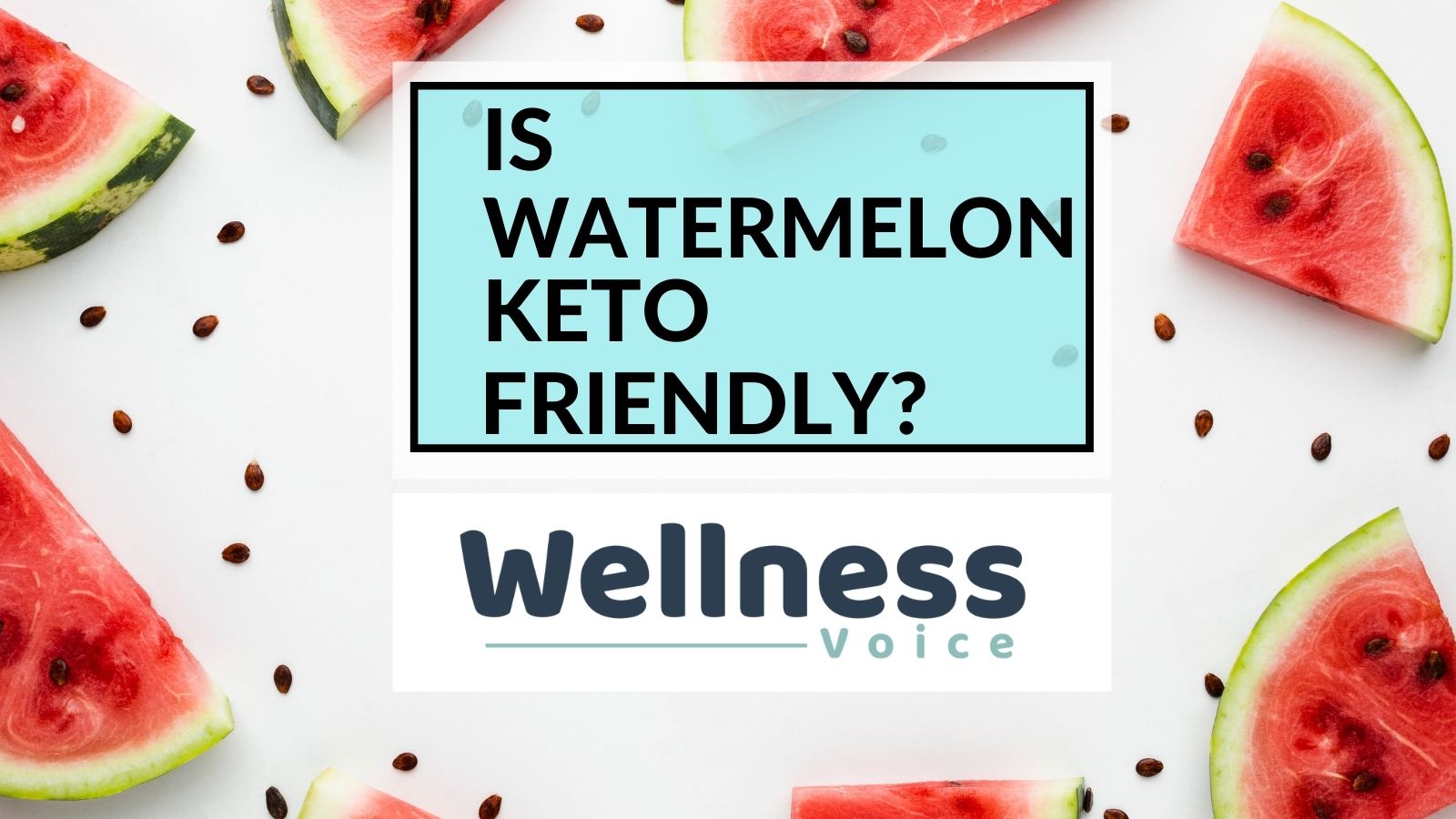
Is watermelon Keto friendly, or will it kick you out of your ketosis? Well, the good news is, yes, watermelon can be part of the Keto. The fruit contains a high quantity of water, is rich in valuable vitamins and nutrients, and keeps the body hydrated.
This article will focus on the health benefits that watermelon provides and how it can benefit you while you’re on ketosis.
Table of Contents
Can You Eat Watermelon on Keto?
As discussed above in the introduction, watermelon is a healthy fruit and can be part of the Keto diet and other low-carb diets. What makes watermelon different from other fruits is that it contains antioxidants such as lycopene which lower the risk of cancer and heart diseases.
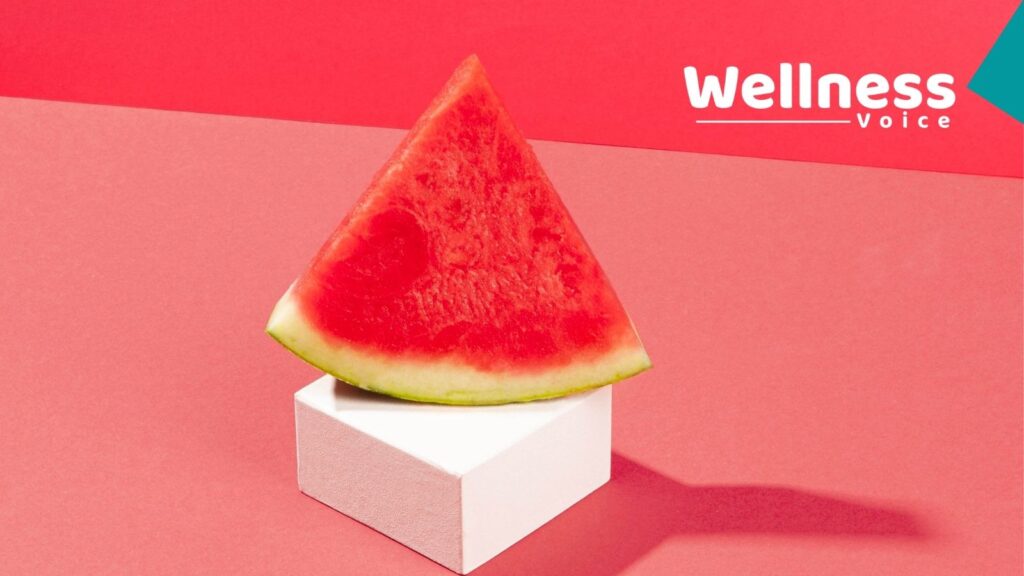
Content of Carbohydrates in Watermelons?
The Ketogenic diet is quite strict and forces the user to follow a certain diet pattern. When you are following a Keto diet, your consumption of carbohydrates is extremely low. One of the reasons fruits are not part of the Keto diet is because they have a high content of carbohydrates.
However, when compared to other fruits, watermelons have a much lower content of carbohydrates. For example, a cup of diced watermelon contains (152 grams) contains only 11.5 grams of carbs and 0.5 grams of fiber, so the total net carbohydrates in the fruit are eleven grams.
Net carbohydrate is a term that describes the number of carbs in a portion of food that is absorbed by the body. However, whether watermelon can be a part of your Ketogenic diet or not depends on what you eat. On a 2000 calorie diet, you are generally allowed 100 calories of carbohydrates, about 25 grams per day.
So, eating watermelon during the day will take up approximately half of your carbohydrates allotment for the day. Therefore, you will need to plan accordingly and find other ways to fit watermelon into your daily diet.
Watermelon Vitamins Profile
Watermelon contains many types of vitamins and nutrients:
Vitamin C
A cup of diced watermelon provides roughly 21 % of a person’s daily Vitamin C requirement. This antioxidant helps the body maintain bones, blood vessels, and healthy tissues. Vitamin C also helps the body in healing wounds, forming collagen, and absorbing plant-based iron.
Vitamin A
A cup of diced watermelon can fulfill 17% of a person’s daily Vitamin A requirement. Vitamin A helps the body maintain the immune system and keep the eyes and skin healthy.
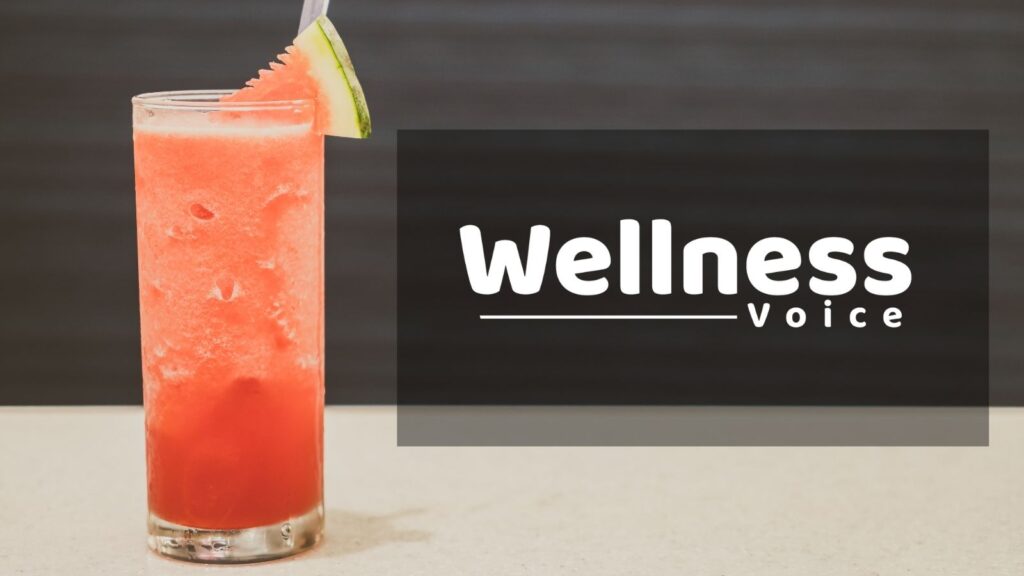
Other Fruits Allowed on the Keto Diet
Keto friendly foods are generally low in carbohydrates, and fruits usually contain high sugar, fiber, and carb content. However, there are some Keto friendly fruits apart from watermelon that you can eat:
Avocado (8.35 grams of net carbs per 100 grams)
Blackberries (9.61 grams of net carbs per 100 grams)
Tomatoes (3.89 grams of net carbs per 100 grams)
Peaches (10.1 grams of net carbs per 100 grams)
Strawberries (7.68 grams of net carbs per 100 grams)
People Who Shouldn't Consume watermelon
People that are sensitive to watermelons or allergic to them should not consume them. Watermelon is also high in fructose, which can impact the glucose levels in the body. People who are insulin resistant should stay away from watermelons.
Watermelon is also considered a high FODMAP (fermentable oligosaccharides food) that can irritate some individuals. Watermelons can also disturb the digestive system, and individuals that have the following conditions should not consume watermelons:
Irritable Bowel Syndrome
Chron’s Disease
Small Intestine Bowel Bacteria
Ulcerative Colitis
Nutrition Facts about Watermelon
If you consume 100 grams of watermelon, these are the nutrients you will get:
- Calories: 30
- Fat: 0.2 grams
- Protein: 0.6 grams
- Dietary Fiber: 0.4 grams
- Sugar: 6 grams
- Potassium: 112 mg
- Cholesterol: 0 mg
Other Health Benefits of Watermelon
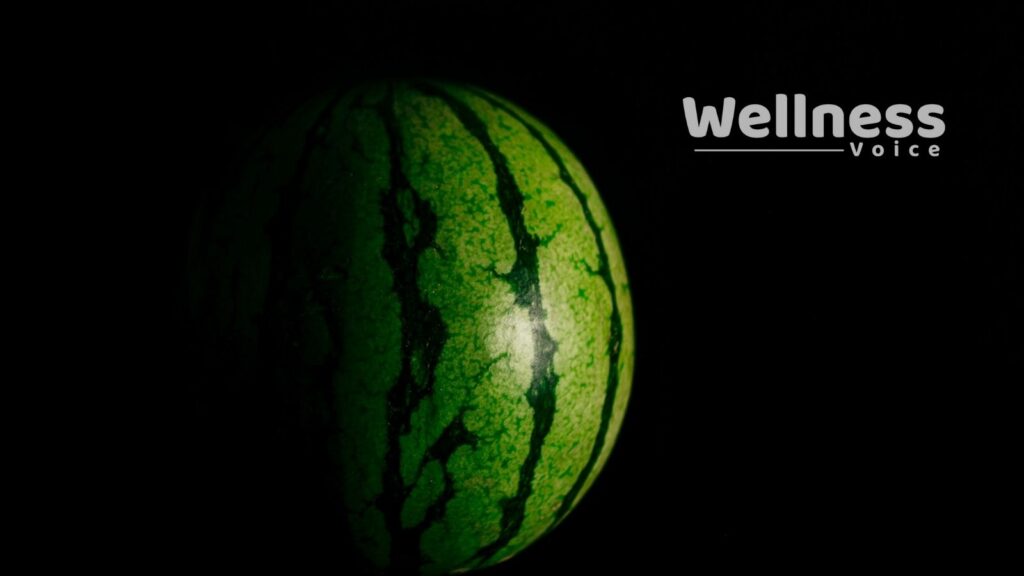
We have already discussed some healthy benefits; however, there are more, and they have been discussed below:
Prevents Dehydration
The content of water is incredibly high in watermelons as 92 % of the fruit is water. The fruit will keep you hydrated and is commonly consumed during the summer months.
Protects Against Dangerous Diseases
Watermelon is rich in antioxidants that fight dangerous diseases that can cause damages to DNA cells. In addition, lycopene in watermelons helps keep harmful diseases away.
Relieves Inflammation in the Body
Watermelon protects the body against chronic inflammation by relieving it. However, inflammation left unchecked can lead to several inflammation diseases, so it is important to make watermelons a part of your Keto diet.
Helps Achieve Weight Loss Goals
Watermelon is the best fruit for weight loss as it is low in calories and has high water content. In addition, watermelon also contains the amino acid arginine, which assists in reducing obesity and burning fat cells.
Low-Carb Watermelon Recipes
The recipes mentioned below are free or added sugar, refined sugar, and low in carbohydrates:
Chili-Lime Watermelon, Cucumber and Jicama Cups
This appetizer is spicy, is a delightful mix of cucumbers, Jicama, and watermelon. This recipe contains no added sugar, has an extremely low carb content, and can be part of your Ketogenic diet.
Watermelon Popsicles
These frozen and sweet watermelon treats are easy to make, and you can also add coconut milk that will give the popsicles a white base.
Grilled Watermelon Salsa
The perfect way to make a savory dish is with watermelon. This dish also contains other types of vegetables that are low in carbs.
Spicy Watermelon Salad
This is a spicy salad, and its main ingredient is watermelon along with vegetables.
Sparkling Watermelon Cooler
These coolers are easy to make; all you need is a blender and some watermelon.
Watermelon Lime Spitzer
This watermelon lime spritzer is a sugar-free, low-fat carbohydrates treat perfect for the summer months.
Watermelon Smoothie Cooler
This is a delicious drink; it has a thick texture and easily fits into your Keto diet.
Watermelon Kebobs with Sweet Cream Dip
This is a light dessert and includes:
· Mint
· A sweet dip
· Watermelon
· Cheese
Triple Melon Popsicles
These popsicles are delicious frozen treats that are made from watermelon. These popsicles are also low in carbohydrates and calories.
Watermelon Sorbet
This watermelon sorbet also contains lime; it is delicious and refreshing.
Low-Carb Frozen Watermelon Lime Slushies
Both adults and kids can enjoy these lime slushies, it contains watermelon and lime and is delicious.
Risks of Keto Diet
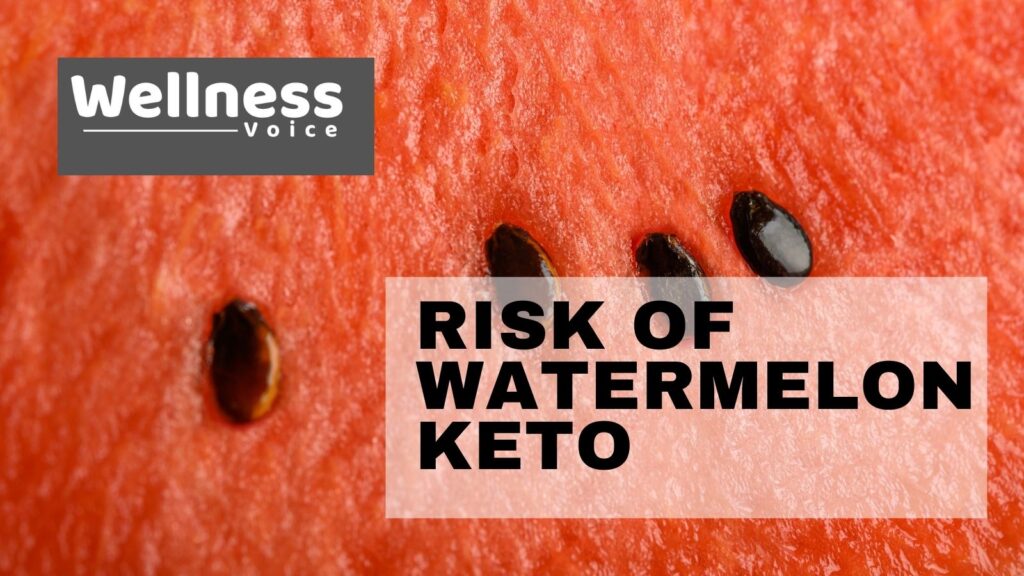
Before you embark on your Ketogenic journey, there are four health risks that you need to be aware of:
Ketogenic Flu
The intake of carbohydrates on the Keto diet is less than fifty grams, which can cause a shock to your body. As the content of carbs drops, your body will start using ketones as a source of energy. When the body is transitioning from carbs to ketones, you make experience ‘Keto Flu.
The flu is usually mild, and these are its symptoms:
- Constipation
- Nausea
- Dizziness
- Fatigue
- Headaches
The flu is rarely serious and barely lasts more than a few weeks.
Keto Might Stress your Kidneys
Animal foods high in fat such as cheese, meat, and eggs are a staple of the Ketogenic diet and can cause stones in the kidney. The reason being that the high consumption of animal food causes the urine and blood to be more acidic.
Also, people with chronic kidney issues should stay away from the Keto diet, as weak kidneys will not remove the acidic build-up. Failure to remove the acidic build-up can lead to a condition known as acidosis, which can worsen the kidneys.
Keto Diet May Cause Digestion-related Issues
Since Ketogenic diets restrict the intake of carbohydrates, it can get tough for you to meet the daily fiber requirements of your body. In addition, some rich sources of fiber such as fruits, whole grains, starchy vegetables, and beans are not part of the Ketogenic diet, which could lead to several digestive-related issues and illnesses.
A study that spanned over ten years was conducted on children who had epilepsy and were following the Keto diet, found that more than 65 % of the participants reported constipation as a side effect. Furthermore, fiber is fuel for beneficial gut bacteria, and a healthy gut improves the immune system and mental health.
Keto Diet May lead to Nutrient Deficiencies.
Some studies suggest that the Ketogenic diet does not provide the following essential nutrients:
- Calcium
- Phosphorus
- Magnesium
- Vitamin D
A study that examined the nutrient composition of popular diets found that low-carb diets such as Atkins, which has similar characteristics to Keto, does not provide sufficient nutrients to the body; however, it was concluded that over time, the number of nutrients provided by the diet would most likely decrease.
It would help if you also kept in mind that your nutrient intake depends on the foods you consume. A diet that is rich in the following food items provides more nutrition than consuming processed meat:
- Avocados
- Non-Starchy vegetables
- Nuts
Conclusion
So we go back to the old question is watermelon keto friendly? And the answer to that is yes, but it depends on how you consume it. Even though watermelon contains a low content of carbs, the Keto diet only allows a certain quantity of carbs per day, and a bowl of diced watermelon can fulfill all your carb needs for the day.
We have also discussed the nutritional value of watermelon and mentioned eleven delicious watermelon recipes. All the information in this article is accurate and helpful; study it and make your decision.
